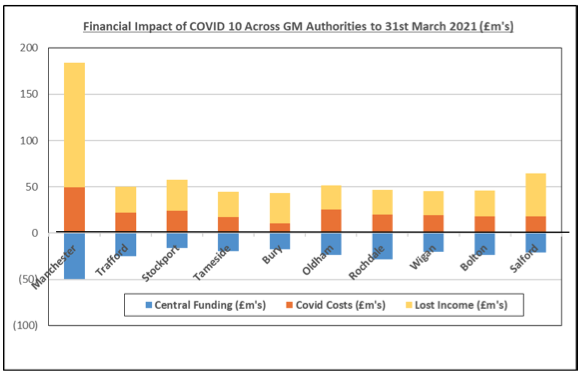Report back on High Rise building fire risks and financial impact of Covid-19.
Earlier this week was the regular meeting of the Greater Manchester Combined Authority Corporate Issues and Resource Scrutiny Committee. This brings together 15 councillors from across Greater Manchester. Bury is represented by Prestwich councillor Tim Pickstone, who also chairs the committee this year.
High Rise Building Fire Risk Residents Survey
Following the Grenfell Tower fire in June 2017, the Greater Manchester High Rise Task Force was established to ensure that the area was prepared to respond to a major incident and that all high rise building are safe from fire, and that residents feel safe.
As part of assessing how safe residents feel, a survey of residents was undertaken in the latter part of 2019.
65% of residents said they are concerned about having a fire in their home.
77% of residents who lived in a building where cladding was identified as a risks were concerned.
97% of respondents said that they would trust GMFRS to provide advice.
One of the most significant concerns was the financial impact on apartment owners. Some residents had experienced a 400% increase in service charges and others reported that they had been presented with significant bills (e.g. to remove cladding).
I asked about the financial impact on apartment owners, as I understand mortgage lenders are refusing to lend for properties where there are cladding issues, and in particular whether this was also affecting the ‘non high rise’ apartment blocks which are not covered by the current guidelines.
The full report on the residents survey is here.
Financial Impact of Covid-19 on Greater Manchester Local Authorities
The Combined Authority Finance Director gave members an update on the financial impact of Covid-19 on local government in the area.
The first part of the report concerned the impact on the individual Districts (e.g. Bury). All local councils have experienced extra costs, as a result of Covid-19, the bulk of which have been around social care costs, but also significant costs around highways, transport public health and housing.
Local councils have also had significant loss of income. Around 60% of this has been a loss of ‘commercial income’ – anything from rented property to fees and charges. Roughly 40% is lost taxation income – either lost business rates or lost council tax receipts.
There has been Government grant to help with some of this, but largely this hasn’t covered the lost income.

The second area of the report was on the financial impact on the Greater Manchester Combined Authority. By far the most significant issues are with:
- Retained Business Rate losses – Greater Manchester is part of a pilot scheme for local areas to ‘keep’ (some of the) increases in Business Rates that they generate. For Greater Manchester as a whole this has been successful, as new commercial buildings have opened in recent years. However this is very unlikely to be the case this year and perhaps in future years, so this will have an impact on what the CA can spend.
- Metrolink – obviously use of Metrolink was severely impacted during Metrolink, and remains significantly lower than ‘normal’. The Government has given GM £25 million to help cover this, which covers the bulk of this loss. At the moment Government grant only goes to 3 August 2020, so there is a major issue about lost Metrolink income going forwards.
I asked about the long term impact of the loss of ticket income. Most of the money for the new lines was from borrowing, and the ticket income is paying for that borrowing. I also asked about potential Government funding for new lines, and whether there were any ‘ready to go’ applications being considered.
